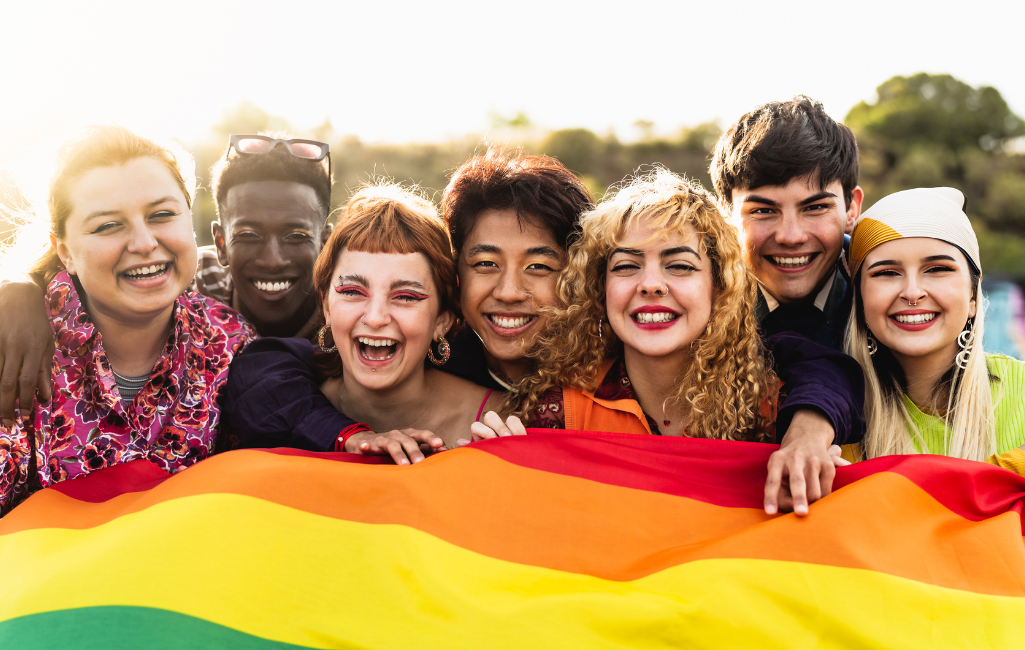The Human Rights Campaign Foundation and the Equality Federation recently released the 12th edition of the Municipal Equality Index (MEI), a comprehensive assessment of LGBTQ+ equality in cities across the country. The index evaluates a city’s municipal policies, laws and services to determine which places are the safest for the LGBTQ+ community to visit, live in and work at. Despite the many hardships and harmful local legislations from the last year, the 2023 MEI showed a record-breaking 129 cities scoring the highest possible marks on the index.
“Cities and towns around the country are stepping up each and every day, finding new and innovative ways to empower LGBTQ+ people in the face of a dire national state of emergency,” Human Rights Campaign Foundation president Kelley Robinson stated. “Even when anti-LGBTQ+ extremists in state capitals are working to undermine their progress, mayors and city councilmembers keep fighting to make sure that LGBTQ+ people in their communities—especially trans people—are supported and lifted up to the fullest extent possible. This year’s Municipal Equality Index shows the results of their dedication while acknowledging the increasingly hostile environment in which they must govern.”
The Municipal Equality Index scores the 50 state capitals, the 200 largest cities in the United States, the five largest cities or municipalities in each state, the cities that are home to the state’s two largest public universities, 75 cities and municipalities that have high proportions of same-sex couples, and 98 cities selected by HRC and Equality Federation state groups, members and supporters.
According to the index results, the number of cities earning the highest score has increased by more than eightfold, with at least 30.3 million people living in cities with more comprehensive, transgender-inclusive non-discrimination laws than their state. One hundred twenty-nine of these cities, more than 25% of all surveyed, earned the highest score of 100 regarding inclusivity within their policies and practices. The national city score average also increased, jumping to 71 points, up two points from last year. The score jump was caused by national progress, with every region of the country seeing a higher score than the year before and marking the 6th consecutive year of improved scores on a national scale.
Besides these victories, there is a need for improvement. For the first time in the history of the MEI, fewer cities are providing transgender-inclusive health benefits to municipal employees. State-level legislation has gravely impacted the enforceability and accessibility of these benefits. Forty-two cities, about 20% of those that have offered trans-inclusive health care in the past, are unable to provide the same benefits to dependent minors due to superseding state law.
As we see opponents of LGBTQ+ rights increasing their attacks on transgender youth in state legislatures, the importance of local-level protections cannot be overstated,” Fran Hutchins, the Executive Director of the Equality Federation Institute, stated in a press release. “Local advocates and community leaders are finding new, creative ways to keep their communities safe, to let queer and trans people know they are loved and belong, no matter what discriminatory state laws are passed. We all benefit from their unwavering commitment to equality.”
In 20 states across the country that lack explicit protections for sexual orientation and gender identity in their non-discrimination laws, 74 cities earned a score of at least 85 points, designating them as All-Star Cities—recognizing their outsized work to push back on overreaching state-level legislation. This year’s All-Star Cities include:
- Alabama: Birmingham
- Alaska: Juneau
- Arizona: Chandler, Flagstaff, Glendale, Mesa, Phoenix, Scottsdale, Tempe & Tucson
- Florida: Coral Gables, Ft. Lauderdale, Gainesville, Hollywood, Miami, Miami Shores, Oakland Park, Orlando, St. Petersburg, Tallahassee, Tampa & Wilton Manors
- Georgia: Atlanta, Decatur & Athens-Clarke County
- Indiana: Terre Haute, Bloomington & Evansville
- Kansas: Lawrence, Overland Park, Topeka & Wichita
- Kentucky: Covington, Lexington & Louisville
- Louisiana: New Orleans
- Missouri: St. Louis, Columbia & Kansas City
- Montana: Missoula
- North Carolina: Chapel Hill, Charlotte, Durham, Greensboro, Winston-Salem & Carrboro
- Ohio: Akron, Cincinnati, Cleveland, Columbia, Dayton, Dublin, Lakewood & Toledo
- Oklahoma: Norman
- Pennsylvania: Allentown, Carlisle, Erie, Harrisburg, New Hope, Philadelphia, Reading & State College
- South Carolina: Myrtle Beach
- South Dakota: Brookings
- Texas: Dallas, Denton, Fort Worth, San Antonio, Arlington & Austin
- West Virginia: Charleston, Huntington & Morgantown
- Wyoming: Laramie
These results show that while there is still work to be done in legislation, local communities are starting to step up for the LGBTQ+ community overall.



